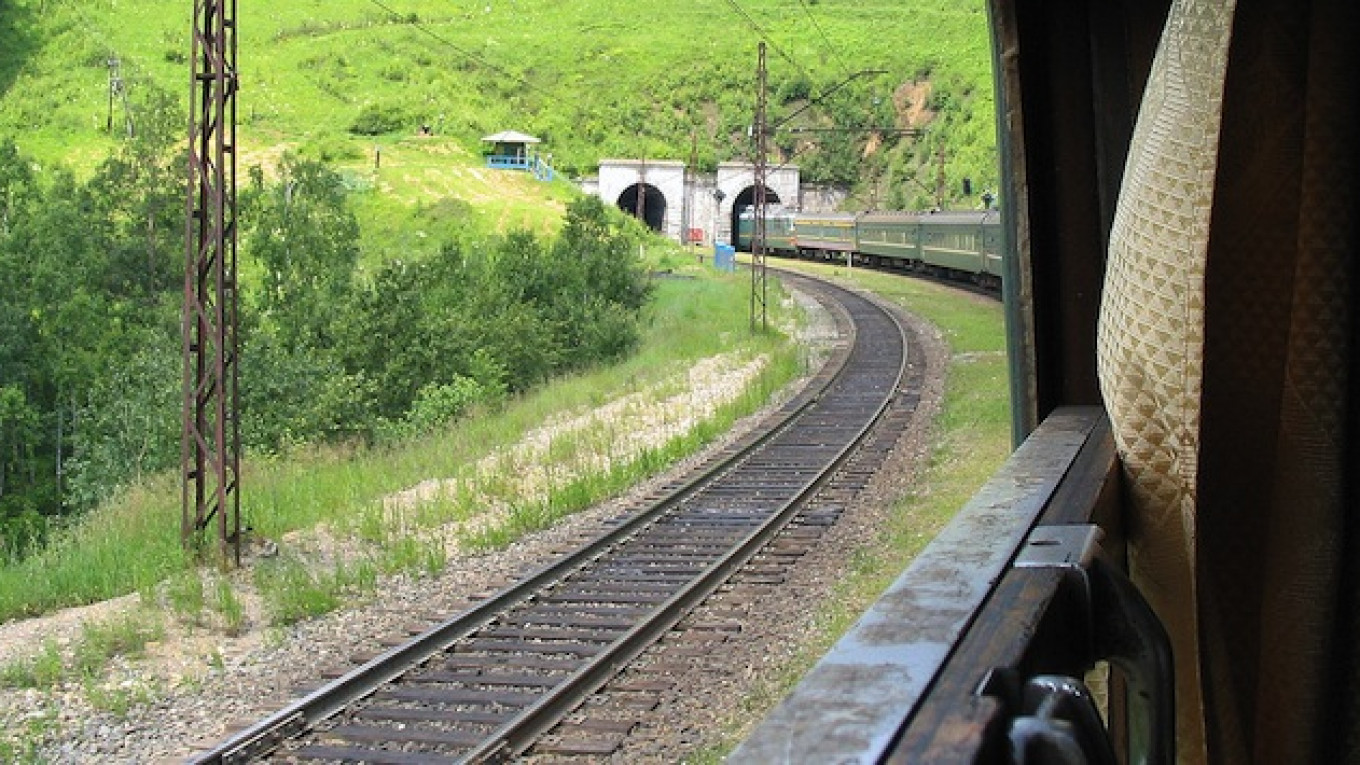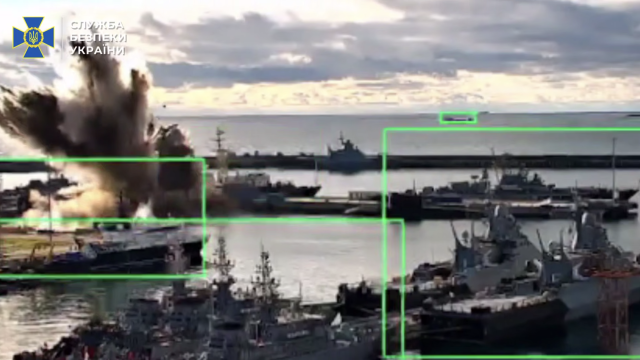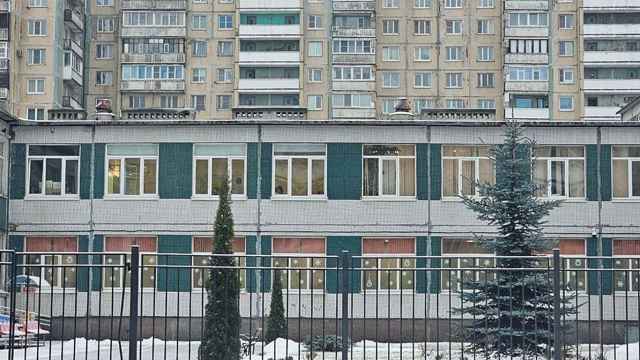The cost of modernizing the legendary Trans-Siberian Railroad and the Baikal-Amur Mainline, could increase by 59 billion rubles ($1.6 billion) — a financial burden likely to fall on the already over-burdened state budget, Vedomosti reported Tuesday.
The revamp of the two lines is intended to economically revitalize Russia's vast Siberian landmass by reviving its role as thriving trade corridor between Europe and Asia dotted with blooming regional cities.
The initial plan, which was approved by the Cabinet last April, envisaged spending 562 billion rubles ($15.5 billion) to increase the freight capacity of both the trans-Siberian line and the Baikal Mainline — its Soviet-era sibling, which runs north of and parallel to the original line — by 55 million tons per year.
However, the price tag has risen 10.5 percent to 621 billion rubles ($17.1 billion) after a government-ordered reappraisal recommended the insertion of plans to build a new line between the eastern Siberian cities of Mezhdurechensk and Taishet at a cost of 40 billion rubles ($1.1 billion), and to improve rail access to the coal-rich Kuznetsk Basin, the newspaper reported, citing a copy of the revised plan.
The freight capacity target has also been bumped up to 75 million tons per year.
State-monopoly Russian Railways, which has lobbied the project, last year agreed to put 302 billion rubles ($8.3 billion) toward the modernization plan, with another 150 billion ($4.1 billion) to come from the National Welfare Fund — one of Russia's oil-revenue funded piggybanks — and 100 billion ($2.7 billion) from the budget.
It is unclear whether the government, which is struggling to cope with falling tax revenues amid a sharp economic slowdown, would be willing to commit more budget funds to the project.
The Finance Ministry did not respond to Vedomosti's requests for comment.
See also:
Ramenskoye Military Airfield to Become Moscow's 4th International Airport
A Message from The Moscow Times:
Dear readers,
We are facing unprecedented challenges. Russia's Prosecutor General's Office has designated The Moscow Times as an "undesirable" organization, criminalizing our work and putting our staff at risk of prosecution. This follows our earlier unjust labeling as a "foreign agent."
These actions are direct attempts to silence independent journalism in Russia. The authorities claim our work "discredits the decisions of the Russian leadership." We see things differently: we strive to provide accurate, unbiased reporting on Russia.
We, the journalists of The Moscow Times, refuse to be silenced. But to continue our work, we need your help.
Your support, no matter how small, makes a world of difference. If you can, please support us monthly starting from just $2. It's quick to set up, and every contribution makes a significant impact.
By supporting The Moscow Times, you're defending open, independent journalism in the face of repression. Thank you for standing with us.
Remind me later.






